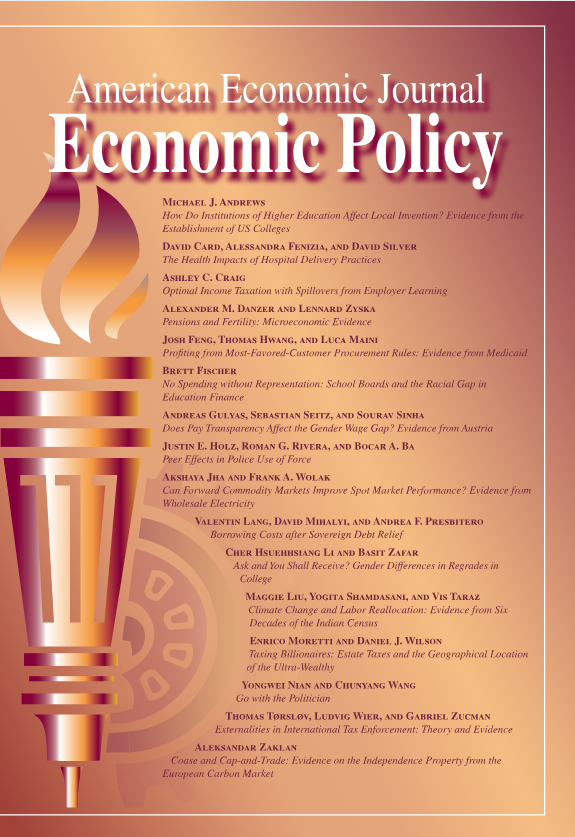企业税收减免和高管薪酬
IF 5.6
1区 经济学
Q1 ECONOMICS
引用次数: 0
摘要
我分析了两种公司税收减免——奖金折旧和国内生产活动扣除(DPAD)——对美国上市公司高管薪酬的影响。我发现这两项税收减免都显著提高了高管薪酬。公司每从税收减免中获益1美元,该公司收入最高的5位高管的薪酬就会增加0.17美元至0.25美元。税收减免主要增加了治理结构较弱的公司的薪酬,这表明薪酬反应是由高管租金提取驱动的。(凝胶d22, g34, h25, m12, m52)本文章由计算机程序翻译,如有差异,请以英文原文为准。
Corporate Tax Breaks and Executive Compensation
I analyze the effect of two corporate tax breaks, bonus depreciation and the Domestic Production Activities Deduction (DPAD), on executive compensation in publicly traded US firms. I find both tax breaks significantly increase executive compensation. For every dollar a firm benefits from the tax breaks, compensation of the firm’s top five highest-paid executives increases by $0.17 to $0.25. The tax breaks increase compensation primarily in firms with weaker governance structures, suggesting the compensation response is driven by executive rent extraction. (JEL D22, G34, H25, M12, M52)
求助全文
通过发布文献求助,成功后即可免费获取论文全文。
去求助
来源期刊

American Economic Journal-Economic Policy
ECONOMICS-
CiteScore
8.20
自引率
1.90%
发文量
68
期刊介绍:
The American Economic Review (AER) is a general-interest economics journal. The journal publishes 12 issues containing articles on a broad range of topics. Established in 1911, the AER is among the nation's oldest and most respected scholarly journals in economics.
American Economic Journal: Economic Policy publishes papers covering a range of topics, the common theme being the role of economic policy in economic outcomes. Subject areas include public economics; urban and regional economics; public policy aspects of health, education, welfare and political institutions; law and economics; economic regulation; and environmental and natural resource economics.
 求助内容:
求助内容: 应助结果提醒方式:
应助结果提醒方式:


